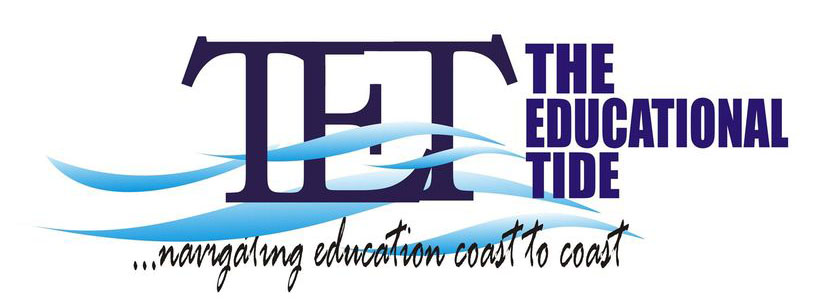The Joint Admissions and Matriculation Board (JAMB) has directed tertiary institutions to begin the 2020 admissions for candidates for first and second choices on August 21, 2020.
It also released guidelines for the admissions to all heads of the tertiary institutions in Nigeria.
“The 1st and 2nd Choices Admission-Exercise will be conducted for all institutions from 21st August 2020 to a later date that would be determined by the Federal Ministry of Education and communicated to all the institutions,” it said.
“The uncertainties of the Covid-19 make it impossible to fix a terminal date.”
In the guidelines to the vice-chancellors, rectors and provosts of universities, polytechnics and colleges of education; JAMB warned against flouting decisions of its 2020 policy meeting, held on Tuesday, June 16, 2020, insisting that all admissions must be carried out in honest and transparent manners.
Prof. Ishaq Oloyede, JAMB Registrar, explained in the guidelines are expected to guide all the participants in the admission process.
“The guidelines explain the nitty-gritty of the processes of admission of candidates into the Nigerian Tertiary Institutions.
“All heads of institutions and admission officers are advised to carefully study and understand the content of the document with a view to implementing it fully for a seamless and transparent admission exercise.
“Sanctions shall be applied to institutions that violate the decisions.
“The Admission-Exercise for the 2020/2021 Academic Session would be conducted on Central Admission Processing System (CAPS),” JAMB stated.
The Board tasked the three higher institutions’ regulatory bodies: The National Universities Commission ( NUC), the National Board for Technical Education (NBTE) and the National Commission for Colleges of Education (NCCE) to collaborate with it to ensure full compliance” of the guidelines.
The Board said it has stopped illegal or irregular admission in any form, saying all admissions must pass through it.
“All applications for admissions to First Degree, National Diploma, National Innovation Diploma and the Nigeria Certificate in Education into Full Time, Distance Learning, Part-Time, Outreach, Sandwich, etc, must be processed ONLY through the Joint Admissions and Matriculation Board (JAMB).
“Institutions which are still involved in advertising or selling application forms for admissions into the programmes should stop henceforth.
“Institutions should advise candidates to apply to them through the Joint Admissions and Matriculation Board (JAMB). Duplication of application forms is NOT allowed.
“Joint Admissions and Matriculation Board (JAMB) and the three Regulatory Agencies (National Universities Commission (NUC), National Board for Technical Education (NBTE) and National Commission for Colleges of Education (NCCE)) will ensure that all Tertiary Institutions comply with this policy directive.”
“The duration of all Non-Full Time Studies must be maintained as approved by the Regulatory Agencies. This is generally not less than one hundred and fifty per cent (150%) of the equivalence of Full Time.”
JAMB also gave advice to the institutions on advertisement for change of institutions by the candidates.
“Institutions that desire to place advertisement can do so by advising candidates who applied for the current UTME to change to their institution as First (1st) Choice rather than requesting the candidates to purchase another application form or apply.
“This is to prevent the issue of double registration which is a violation of the JAMB mandate.”
It explained that the mode of the Admission-Exercise for the 2020/2021 Academic Session would be conducted on Central Admission Processing System (CAPS)”, adding that:” No Institution is allowed to publish, announce, exhibit or paste any name(s) of the admitted candidate without prior approval of the name on CAPS.”
Insisting that the exercise would only be fully conducted on CAPS, JAMB explained that the “The principal participants are the Registrar of the Joint Admissions and Matriculation Board (JAMB) as Chairman; Heads of Tertiary Institutions; Director of Admissions (JAMB) Admission Officers of Tertiary Institutions; JAMB Desk Officers; and Candidates.”
Among the procedures for admission, according to JAMB, include: “Recommendations and Approval Institutions are to recommend candidates for admission after having presented to the Board the following information through CAPS:
“The approved general quota for each institution and the distribution to the various programmes; Minimum UTME score for each programme; Minimum DE qualification grades for Direct Entry Candidates; Components of Cut-off marks and the allotted score for each component; the cut-off date for the 1st and 2nd Choice admissions after which no result upload nor change of Institution as 1st Choice would be allowed; supplementary admission can be allowed but fresh candidates cannot have right to being on merit list but through other criteria to fill existing vacancies, and other admissions criteria (if any).”
JAMB said: “No institution will be allowed to recommend or admit any candidate whose UTME score is below the following threshold: Degree — 160; ND — 120; NCE — 100; NID — 100.”
“Institutions cannot reduce their submitted minimum UTME score on the basis of National minimum score in (H2) above. Only institutions with minimum UTME score lower than the National minimum UTME score are obliged to upgrade to meet or surpass the National Minimum score.
“In the same vein, no institution can graduate a candidate who has not been a full-time student of that institution for at least 2 consecutive years.
“Affiliated institutions are to adopt the same minimum UTME scores as the mother institutions,” it added.
JAMB Directs Schools to Begin Admission Exercise August 21.
Please login to join discussion













